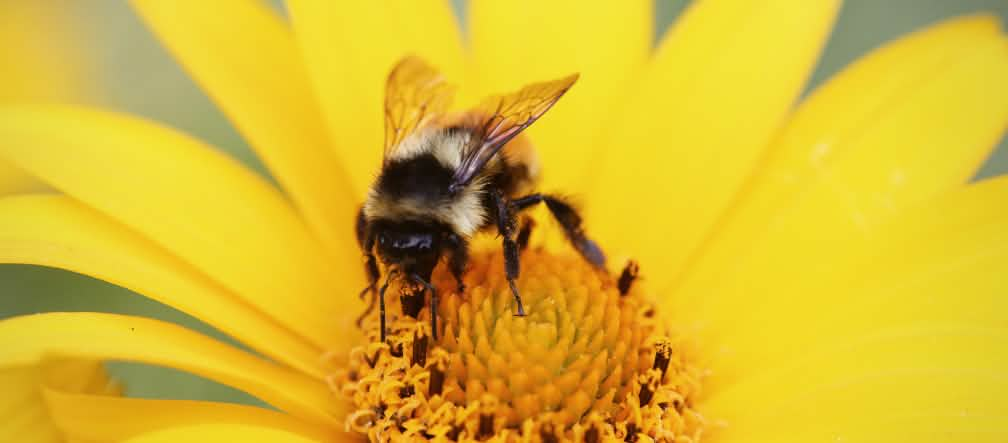
Completed campaign
Red alert for bees: ban neonic pesticides in Europe
Europe’s farmers are engaged in chemical warfare against nature: Neonicotinoid pesticides kill indiscriminately, including pollinators like bees. Please tell the EU and its Member States to prohibit them.
To: European Court of Justice, the EU and governments of the Member States
“Pollinators need our help – ban the use of deadly neurotoxins in agriculture.”Chemical giants BASF, Bayer, Dow and Syngenta produce dangerous neurotoxins for agricultural use. Neonicotinoid pesticides kill insects indiscriminately, including pollinators such as bees. Monsanto and Dupont also sell neonicotinoid-treated seed.
Neonicotinoids are not only deadly on the fields themselves: minute quantities adhering to dust particles distributed by the wind are sufficient to spread the lethal effect across the countryside, as occurred in Rheintal, Germany in April 2008. The sowing of corn treated with neonicotinoids led to massive bee mortality. The bee deaths prompted the European Commission to temporarily ban the use of the neonicotinoids clothianidin, thiamethoxam and imidacloprid as well as the pesticide fipronil. The chemical manufacturers BASF, Bayer and Syngenta responded by filing complaints before the European Court of Justice. The proceedings are still ongoing.
According to the Guardian, the European Commission currently has draft regulations in the works that would completely ban neonicotinoid pesticides for open-air use. The Member States could vote on the proposal as soon as May 2017.
Tell policymakers and the European Court of Justice to finally put a permanent ban of neonicotinoids and other neurotoxic pesticides in place in Europe.
Pollinating insects such as honeybees and bumblebees are crucial for a healthy environment – around 80 percent of all cultivated and wild plants depend on them.
The EU estimates the economic value of bees as pollinators for agriculture in the EU to be at least €22 billion annually. Bees are also a source of honey, pollen and wax.
Neonicotinoids are deadly for bees and other insects at very low doses. This makes establishing a direct link between bee mortality and the use of neurotoxins in agriculture very difficult. The chemical and seed producers dispute the connection and point to other possible causes such as mite infestations in the hives.
In March 2013, Friends of the Earth Germany (BUND) successfully sued Bayer CropScience Deutschland, a subsidiary of Bayer AG. According to the verdict of the Düsseldorf District Court, BUND may once again state without restriction that two pesticides produced by Bayer are dangerous for bees. The judges also agreed with the environmentalists that a logo used by Bayer on the products labeling them as “safe for bees” is misleading for consumers.
The mostly long-lasting chemicals can be detected in plants, soils and bodies of water. They not only threaten insects, but also fish, amphibians, birds, mammals – and ultimately humans.
Greenpeace, January 12, 2017: The Environmental Risks of Neonicotinoid Pesticides
Reuters, September 10, 2015: U.S. court finds EPA was wrong to approve Dow pesticide harmful to bees
European Food Safety Authority (EFSA):
August 26, 2015: Neonicotinoids: foliar spray uses confirmed as a risk to bees
March 11, 2015: Conclusion on the peer review of the pesticide risk assessment of the active substance sulfoxaflor
To: European Court of Justice, the EU and governments of the Member States
Ladies and Gentlemen,
I call on you to permanently ban the agricultural use of neurotoxic pesticides of the neonicotinoid group as well as the substance fipronil. Independent scientific studies and the assessments of the European Food Safety Authority (EFSA) document their danger to bee populations and implicate them in mass bee mortality worldwide. This also applies to Dow Chemicals’ new pesticide sulfoxaflor, which was approved by the European Commission in July 2015.
In September 2015, a U.S. Court of Appeals ruled in favor of beekeepers and environmentalists, finding that the Environmental Protection Agency (EPA) was wrong to approve sulfoxaflor for use in the United States. The court justifies its decision with the danger to bees posed by the substance, the EPA’s reliance on “flawed and limited data” and the lack of “substantial evidence” supporting the approval.
It is completely unacceptable from an ecological, ethical and legal perspective to permit the killing of countless domestic and wild insects such as honeybees and bumblebees through the use of neurotoxic pesticides.
Yours faithfully,

